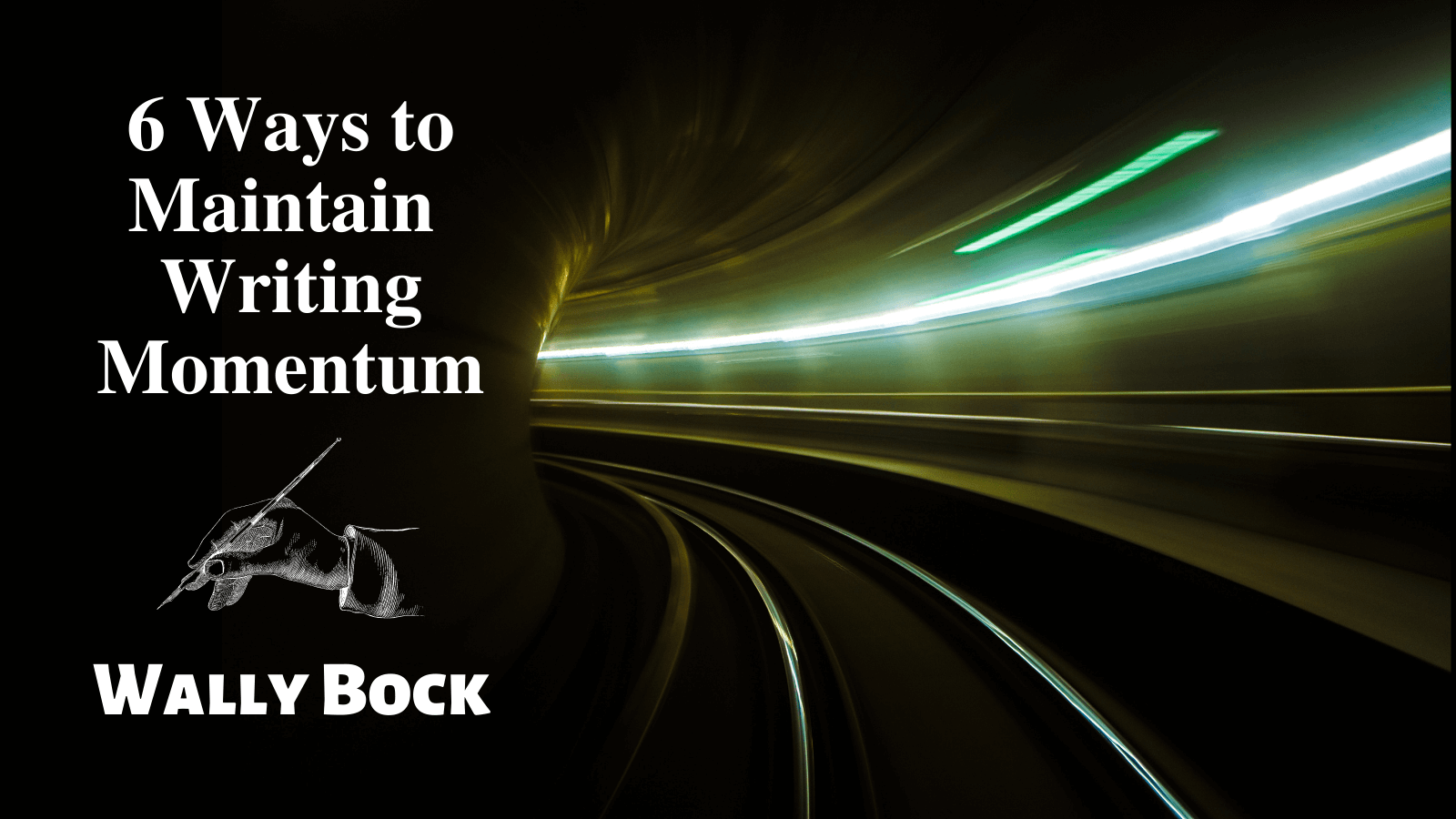Writing a book is hard work. And it’s hard work that extends over more than a year. Everyone who begins a book begins with great enthusiasm. Getting down to work is easy. The challenges are exciting.
It’s not long before that excitement drains away. Then it’s harder to get back to work and do quality work time after time. If you’re a mid-career professional, the challenge is multiplied. You must fit writing sessions into your already-busy life. You probably won’t work on your book every day.
One of your big challenges is to maintain writing momentum. Here are six ways. They’ve worked for me, and they’ve worked for my clients. They’re likely to work for you, too.
Know what’s next
I call this, “The Hemingway Rule.” In 1935, Ernest Hemingway left Key West in his boat and headed for Cuba. He took a young man with him on that trip who had hitchhiked from Minnesota to ask for Hemingway’s advice on writing. Here’s a quote from the article Hemingway wrote about the trip. It was published in Esquire in October 1935.
“The best way is always to stop when you are going good and when you know what will happen next. If you do that every day when you are writing a novel, you will never be stuck. That is the most valuable thing I can tell you so try to remember it.”
That advice works for nonfiction writers, too. When you know what you’re going to write next, you’ll start writing at the beginning of the next session. That’s almost always enough to get you going. Otherwise, you can spend precious time figuring out what to write.
Prepare for your session before your session
Don’t use precious writing time to organize yourself and your materials. Prepare for your writing session before the session. Make sure you have everything you need to start writing immediately.
Use a start-up routine
Develop a pre-start routine that sets you up for writing. Make sure it includes blocking out distractions. When you find a routine that works, turn it into a ritual, and do it the same way every time
Music playlist
I have a special music playlist that I use when I write. So do many other writers. Find music that works for you.
I suggest instrumental music, so you’re not distracted by the words. That means avoiding instrumental versions of songs you know well. I like baroque music and rumba guitar.
Read the last things you wrote
Read some of the last things you wrote in a previous session just before you begin writing. This will get you in the flow of both the meaning and the prose rhythm.
Touch your project on days you don’t write
You won’t be able to write every day, but don’t let a day go by where you don’t touch your project. Make some notes. Do a little research. Review your outline or work plan. This shouldn’t take a lot of time. 15 minutes we’ll do fine.
Takeaways
Know what’s next
Prepare for your session before your session
Use a start-up routine
Music playlist
Read the last things you wrote
Touch your project on days you don’t write
